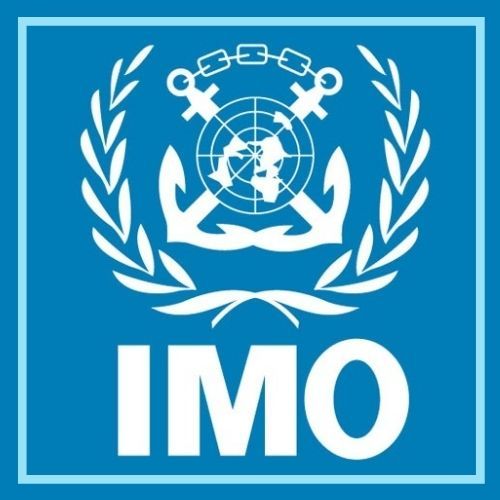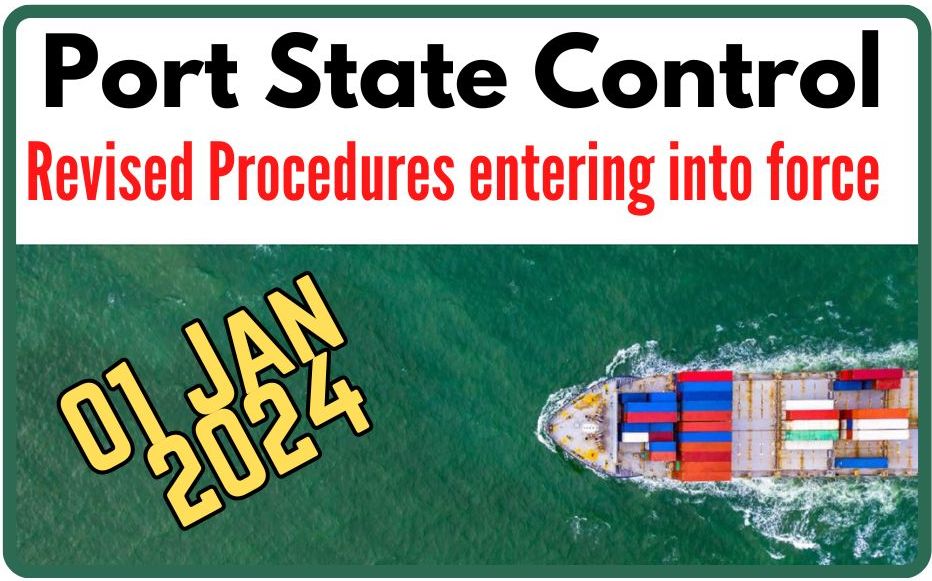
(www.MaritimeCyprus.com) Port State Control (PSC) is the inspection of foreign ships in national ports to verify that the condition of the ship and its equipment comply with the requirements of international regulations and that the ship is manned and operated in compliance with these instruments and ensure maritime safety and security and prevent pollution.
PSC inspections are intended to be a backup to flag State implementation, a “second line of defence” against substandard shipping, and experience has shown that they can be extremely effective. The IMO adopted resolution A.682(17) on Regional co-operation in the control of ships and discharges promoting the conclusion of regional agreements.
Many IMO conventions contain provisions for Governments to inspect foreign ships that visit their ports to ensure that they meet IMO standards contained in instruments to which the port State is a Party, taking into account the concept of no-more favourable treatment. If they do not, they can be delayed or detained until repairs are carried out and be subject to targeting.
For ships travelling to different countries in the same region, a regional coordinated inspection that focuses on substandard ships and avoids multiple inspections can be more efficient and cost effective to member States, as well as providing a level playing field to ports of the region. The harmonization of PSC inspections aims at ensuring that as many substandard ships as possible are inspected and at preventing ships from being subjected to multiple inspections. The primary responsibility for ensuring ships' standards rests with the flag States.
The IMO Sub-Committee on the Implementation of IMO Instruments (III) 9th session took place from 31 July to 04 August 2023 where, among other things, the draft amendments to the Procedures for Port State Control were finalized.
The Sub-Committee on Implementation of IMO Instruments (III) brings together flag, port and coastal States to consider implementation issues, including the analysis of consolidated audit summary reports from the mandatory IMO Member state Audit Scheme, following is a summary with key outcomes from the session:
- III 9 finalized general guidance on the assessment and application of remote surveys and remote audits for inclusion in the draft Survey Guidelines under the Harmonized System of Survey and Certification (HSSC) and the draft Revised guidelines on the implementation of the International Safety Management (ISM) Code by Administrations. The guidance focuses on the circumstances, scope, and type of survey (e.g. annual, renewal, intermediate, etc.) or audit where remote technology may appropriately be employed and also provides circumstances where an in-person survey or audit must be used either as a supplement to remote methods or as the only appropriate method when remote technology is not suitable. Additional guidelines are expected to be finalized at III 10 (Jul 2024).
- III 9 finalized draft amendments to the Survey Guidelines under the Harmonized System of Survey and Certification (HSSC). These draft revisions take into account the amendments to the relevant mandatory instruments due to enter into force up to and including 31 December 2023 and amendments to SOLAS entered into force 1 January 2024. The revisions to the Guidelines were adopted at Assembly 33 (Dec 2023) and entered into force on 1 January 2024.
- III 9 also finalized the draft amendments to the Procedures for Port State Control (A.1155(32)). The draft amendments include guidelines for the detention of ships under MARPOL Annex VI. The revisions to the Guidelines were adopted at Assembly 33 (Dec 2023) and entered into force on 1 January 2024.
Amendments to the Survey Guidelines under the Harmonized System of Survey and Certification (HSSC)
III 9 finalized amendments to the Survey Guidelines under the Harmonized System of Survey and Certification (HSSC). These draft revisions take into account the amendments to the relevant mandatory instruments entered into force up to and including 1 January 2024 including but not limited to:
- MARPOL Annex VI: (as amended by MEPC.328(76))
– Confirmation of the update of the Ship Energy Efficiency Management Plan (SEEMP).
– Confirmation of the ship’s attained EEXI.
– Statement of Compliance related to operational carbon intensity rating. - Amendments to SOLAS (MSC.474(102))
– Towing and mooring equipment.
– Openings in the shell plating below the bulkhead deck of passenger ships and the freeboard deck of cargo ships.
The revisions to the Guidelines were adopted at Assembly 33 (Dec 2023) and entered into force on 1 January 2024.
Procedures for Port State Control (A.1155(32))
III 9 also finalized the draft amendments to the Procedures for Port State Control (A.1155(32)). The draft amendments include guidelines for the detention of ships under MARPOL Annex VI. The revisions to the Guidelines were adopted at Assembly 33 (Dec 2023) and entered into force on 1 January 2024.
The revisions include draft amendments to:
- Guidelines for the detention of ships under MARPOL Annex VI (Appendix 2, Section 5, Detainable Deficiencies) were amended to include:
– The absence of a valid required Statement(s) of Compliance for Carbon Intensity Rating from 2023 and onwards of each following year (Regulation 28) would be considered as a detainable deficiency.
– It was clarified that port State control officers (PSCOs) should take a pragmatic approach if a ship has changed flag and/or company and there is evidence the losing Administration has not acted in accordance with regulation/s or data was not provided by the previous company when the ship was transferred. - On ships provided with an equivalent means of SOx compliance, i.e. an EGCS:
– It would be considered as a detainable deficiency if an Exhaust Gas Cleaning System (EGCS) fails to provide effective equivalence to the requirements in MARPOL Annex VI, regulations 14 and 14.4; and
– It would be considered as a detainable deficiency if the sulfur content of any fuel oil being used in combustion units not connected to the EGCS exceeds the limits stipulated in MARPOL Annex VI regulation 14 (considering the provisions of MARPOL Annex VI regulation 18.2).
The revised Procedures for Port State Control were adopted at IMO Assembly 33 (Dec 2023) and entered into force on 1 January 2024.
For more information, you can download below the IMO Assembly Resolution, containing the Revised Port State Control (PSC) Procedures (180 pages):
Source: IMO















